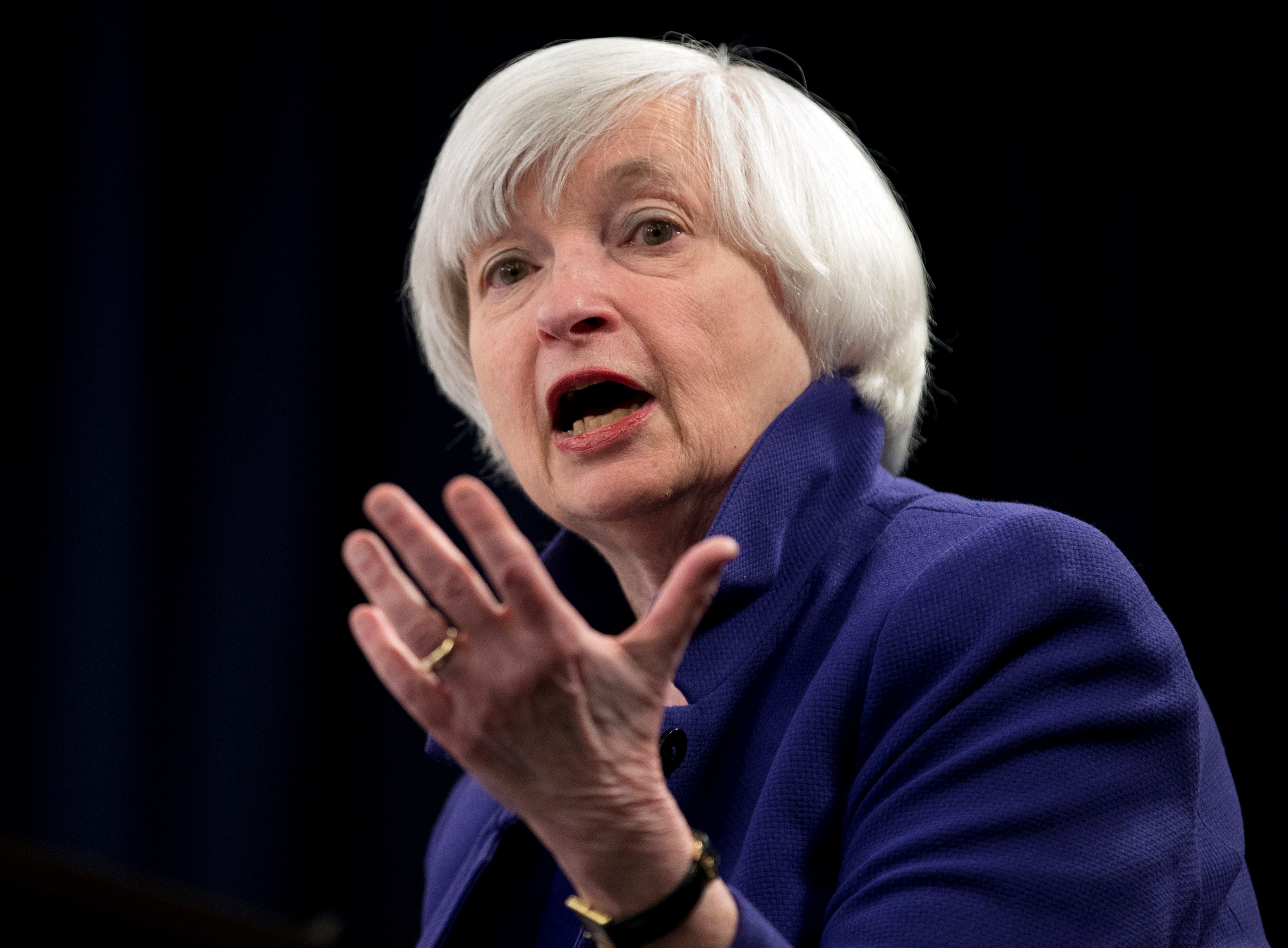Yellen says Congress needs to 'go big' for relief package
Treasury Secretary Janet Yellen says that despite the strong job gains last month, Congress still needs to “go big” by passing President Joe Biden’s $1.9 trillion relief package to get millions of people back to work sooner

Your support helps us to tell the story
From reproductive rights to climate change to Big Tech, The Independent is on the ground when the story is developing. Whether it's investigating the financials of Elon Musk's pro-Trump PAC or producing our latest documentary, 'The A Word', which shines a light on the American women fighting for reproductive rights, we know how important it is to parse out the facts from the messaging.
At such a critical moment in US history, we need reporters on the ground. Your donation allows us to keep sending journalists to speak to both sides of the story.
The Independent is trusted by Americans across the entire political spectrum. And unlike many other quality news outlets, we choose not to lock Americans out of our reporting and analysis with paywalls. We believe quality journalism should be available to everyone, paid for by those who can afford it.
Your support makes all the difference.Treasury Secretary Janet Yellen said Friday that despite the strong job gains last month, Congress still needs to “go big” by passing President Joe Biden s $1.9 trillion relief package to get millions of people back to work sooner.
In an interview with the PBS NewsHour on Friday, Yellen said Biden's package should not be trimmed just because the February jobs report showed 379,000 new jobs had been created, the best showing since October.
At that pace it would still take the country more than two years to get back to full employment, she said. But with the administration's package, she said the country could see a return to full employment by next year.
“It is a big package but I think we need to go big now, and we can afford to go big,” Yellen said. “The most important thing is to get our economy back on track and to help people get their lives back in order to make sure this pandemic does not permanently scar our workforce.”
Yellen said the unemployment rate, which fell to 6.2% in February, was overstating the improvement in the labor force because it does not count the 4 million people who have stopped looking for work and have dropped out of the job market. She said the real unemployment rate is 10%.
After House approval last week, the Senate is now debating the $1.9 trillion relief package with supporters trying to keep Democrats on board in the 50-50 chamber since no Republican is expected to vote for the measure.
Asked about turmoil in U.S. financial markets over the past two weeks, as interest rates have started rising, Yellen said she does not view that development as a sign investors are starting to worry inflation is getting out of hand. She said the rise in rates is a sign that prospects for the economy are starting to improve as more people are vaccinated and Biden's fiscal package makes its way through Congress.
The Federal Reserve “does have the tools to address inflation if it becomes a problem but I don't see markets ... worried about that,” Yellen said.
Yellen also said that Biden remains strongly committed to raising the minimum wage to $15 an hour. The administration will be looking for other legislation later this year where the proposal can be included, after the Senate parliamentarian ruled it could not be part of the relief bill, she said.
The administration is working on a “Build Back Better” measure to boost spending on infrastructure that will also be used to address problems of racial inequality by increasing support for job training and education, she said. The administration also wants to deal with other issues, such as paid leave and child care, she said.
The national debt, which has grown to levels not seen since the end of World War II in terms of its relationship to the total economy, is not a threat at the moment given that interest rates, even though they have risen, still remain at historically low levels, she said.
“The spending we are doing now is arguably helping our debt path by getting our economy back on track,” Yellen said.